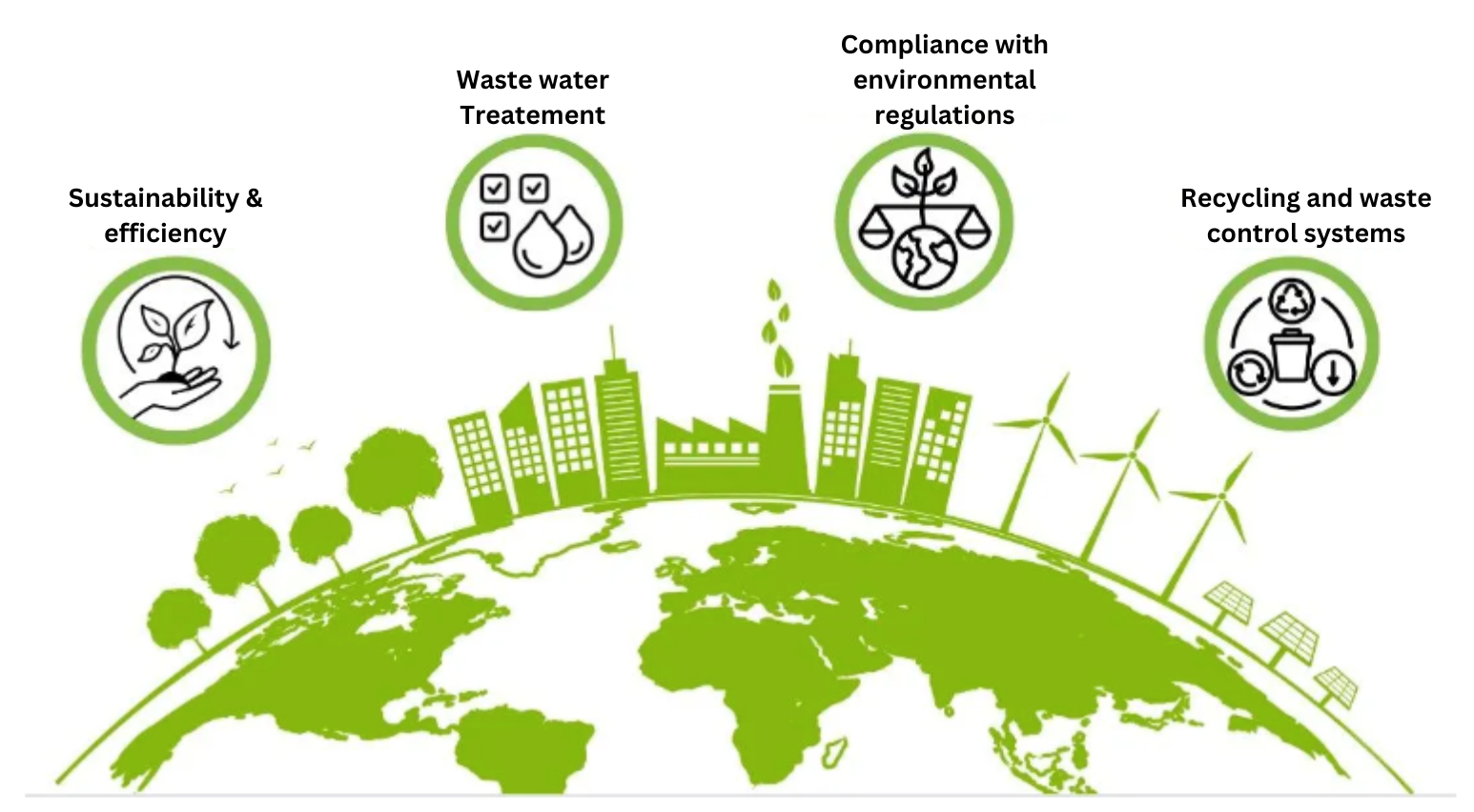Quick Links
Sustainability
All of the Denali-ep employees in Mexico are committed to a single purpose, helping businesses achieve their energy and sustainability goals.
With sustainability now a key driver of business value, stakeholders and investors demand concrete progress toward corporate GHG and sustainability goals. For large manufacturing companies, this means addressing energy consumption patterns and embracing innovative technologies that deliver both environmental and financial returns.
Seeking balance in the efficient use of resources within the industry processes, we saw the need to offer the following services within our comprehensive solution.
- Sustainable use of energy
- GHG Inventory and Carbon Footprint
- Recovery, treatment and reuse of wastewater
- Consulting and Training in Compliance with Environmental Regulations
Sustainability & Reliability Program
Denali Energy Partners Sustainability and Reliability Program
ButtonTo address these multifaceted challenges, Denali Energy Partners has developed a wide-ranging Sustainability and Energy Reliability Program that offers a structured approach to help manufacturers achieve their EHS and GHG goals while ensuring uninterrupted operations and long-term resilience. Denali Energy Partners facilitates and expedites the transition of manufacturers’ GHG and EHS goals to actual implementation, monitoring, and reporting to internal and external stakeholders.
This multi-faceted service is designed to be implemented in a variety of ways to allow each client to choose the segments that best meet their needs along the spectrum of real sustainability and energy reliability compliance.
Global Climate Pressure and Regulatory Changes
Today there is an increasing global emphasis on reducing greenhouse gas (GHG) emissions, driven by international agreements such as the Paris Agreement. What was once considered a lofty ideal for the global manufacturing sector is now the new reality.
Manufacturing companies face unprecedented pressure to meet ambitious corporate Environmental, Health, and Safety (EHS) and greenhouse gas (GHG) reduction goals amidst tightening global regulations, rising energy costs and expanding societal expectations. Achieving these goals requires a balance between operational efficiency, energy reliability, and sustainable practices.
Operational Challenges in Manufacturing
A common theme the large manufacturing sector must navigate is the challenge of reducing their carbon footprint without compromising the reliability and cost-effectiveness of their operations. Aging infrastructure, fluctuating energy costs, and the technical hurdles of integrating renewable energy sources complicate this journey.
Corporate Goals and Stakeholder Expectations
With sustainability now a key driver of business value, stakeholders and investors demand concrete progress toward corporate GHG and EHS goals. For large manufacturing companies, this means addressing energy consumption patterns and embracing innovative technologies that deliver both environmental and financial returns.
The Gap Between Ambition and Execution
Despite setting ambitious GHG reduction and EHS targets, many manufacturers struggle with translating these aspirations into actionable strategies. Limited access to competitively priced renewable energy, reliance on outdated equipment, and unpredictable supply chain dynamics further exacerbate these challenges.




